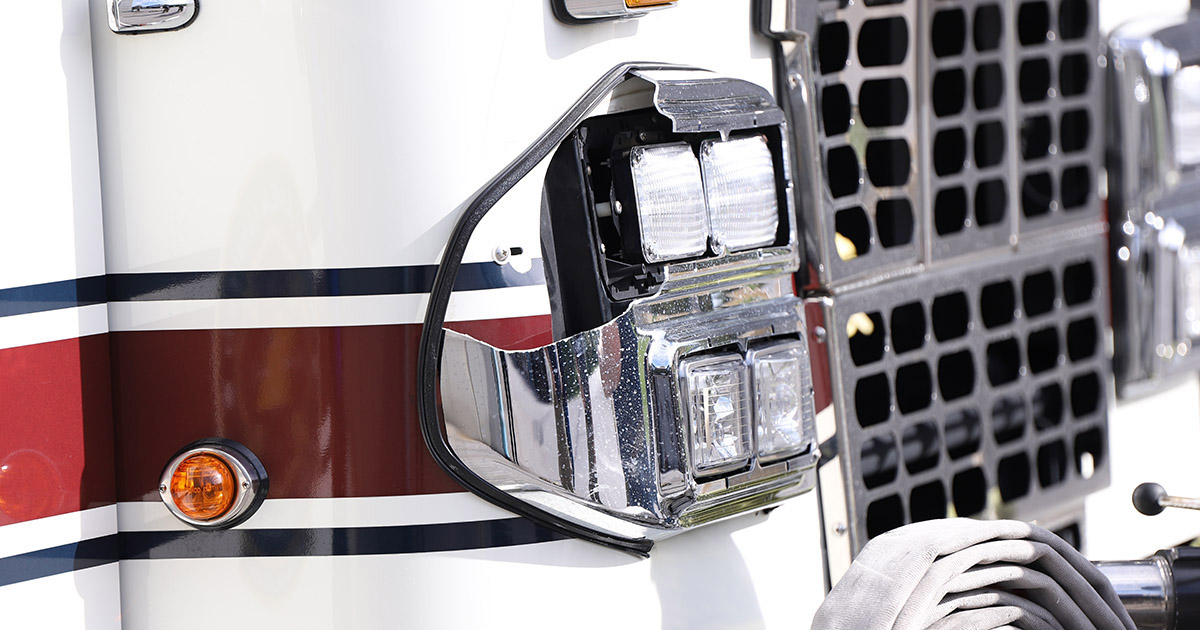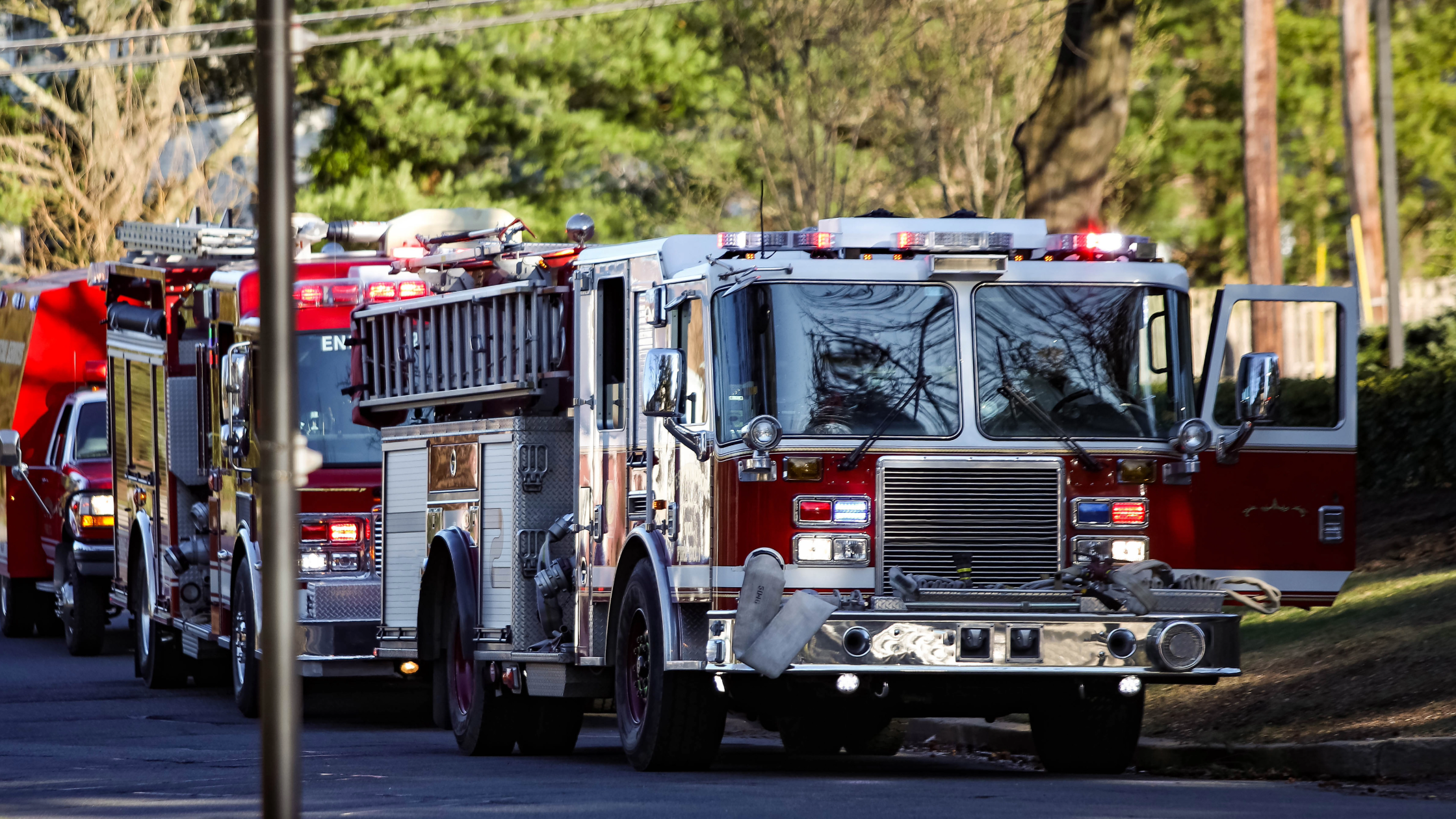Feeling daily stress from your job? Check out these 4 tips to help relieve job related stress.
As first responders, you’re first ones on the scene to very stressful environments and situations that can impact your mental health. It’s important to note that Post Traumatic Stress Disorder (PTSD) and suicide rates are higher among first responders than in other professions. When you arrive at the scene, you put your work face on and you get the job done. But the stress of these situations doesn’t leave after the job is completed; it can follow you home and take a toll on you there as well.
The National Volunteer Fire Council (NVFC) mentions that “by creating awareness about stress management among firehouses, and by implementing coping skills and changes in lifestyle, improvements in sleeping patterns, cognitive ability, immune function, and overall health can be made.”
Due to the pace and pressure of the environment you work in, it’s no surprise that firefighters have one of the most stressful careers out there. Managing and overcoming traumatic stress isn’t easy, but it’s important to recognize the signs and get proactive to begin improving your overall mental and physical health.

How can you manage stress?
1. Practice regular physical activity
The Anxiety and Depression Association of America (ADAA) recommends regular physical activity as it can:
- Reduce fatigue
- Improve alertness and concentration
- Enhance cognitive function
- Increase energy
- Produce endorphins
Endorphins are a natural chemical made by your body. When released, they can improve your mood, lower stress levels and support your body. The ADAA also says that “Scientists have found that regular participation in aerobic exercise has been shown to decrease overall levels of tension, elevate and stabilize mood, improve sleep and improve self-esteem.” Try getting into a routine of regularly exercising to help decrease stress and benefit your overall well-being.
2. Find a hobby
Finding something that you enjoy and that helps take your mind off your job can be a great stress reliever. Taking just an hour out of your day to try something new could potentially become the hobby that helps distract you from the daily stress. Elizabeth Scott from Very Well Mind mentions that if you spend at least 20 minutes a week participating in any form of leisurely physical activity, you will be less likely to experience fatigue. Whether it's taking a walk, reading, hiking or gardening, find something that you look forward to doing after a long day of work and incorporate it into your daily routine.
3. Spend time with loved ones
The American Institute of Stress says that one of the main causes of stress comes from trying to juggle work and personal life. Your loved ones are your support system, so spending time with them can relieve some of the stress you’re feeling. Planning fun activities can give you quality time with your support system, while giving you something to look forward to during your busy week.
4. Practice deep breathing
Relaxation techniques can help you stay in the present moment, rather than letting your thoughts wander. These can be anything from taking yoga classes to sitting in your car listening to your favorite song. Taking just 5 minutes a day to relax your body and focus on the cycle of your breath, breathing in through your nose and out through your mouth can help you stay in the current moment.

Sometimes it’s hard to ask for help, even when you know you need it most. Try incorporating some of these tips into your daily routine to help you let go of the stress you may be feeling from your job. First responders do a lot of supporting, but they need to give themselves support too.

Abby Astrachan
Our summer 2019 marketing intern, Abby, is motivated to leave her bed for her morning iced coffee. When she isn’t obsessing over her dog, Disney and Crocs, she can be found craving Roburritos and spending lots of time with her family and friends.
DISCLAIMER
The information contained in this blog post is intended for educational purposes only and is not intended to replace expert advice in connection with the topics presented. Glatfelter specifically disclaims any liability for any act or omission by any person or entity in connection with the preparation, use or implementation of plans, principles, concepts or information contained in this publication.
Glatfelter does not make any representation or warranty, expressed or implied, with respect to the results obtained by the use, adherence or implementation of the material contained in this publication. The implementation of the plans, principles, concepts or materials contained in this publication is not a guarantee that you will achieve a certain desired result. It is strongly recommended that you consult with a professional advisor, architect or other expert prior to the implementation of plans, principles, concepts or materials contained in this publication.
This blog post may contain the content of third parties and links to third party websites. Third party content and websites are owned and operated by an independent party over which Glatfelter has no control. Glatfelter makes no representation, warranty, or guarantee as to the accuracy, completeness, timeliness or reliability of any third party content. References to third party services, processes, products, or other information does not constitute or imply any endorsement, sponsorship or recommendation by Glatfelter, unless expressly stated otherwise.
Related posts
We asked 10 members of our VFIS Team to name one auto-related risk that they believe is underdiscussed in fire and EMS agencies. Here’s what they said.
Most volunteer fire departments rely heavily on POVs, but there are inherent risks you should know.
Establish a Emergency Vehicle Operations Program that includes driver/operator requirements to help ensure your vehicles are in the right hands.







Submit a Comment